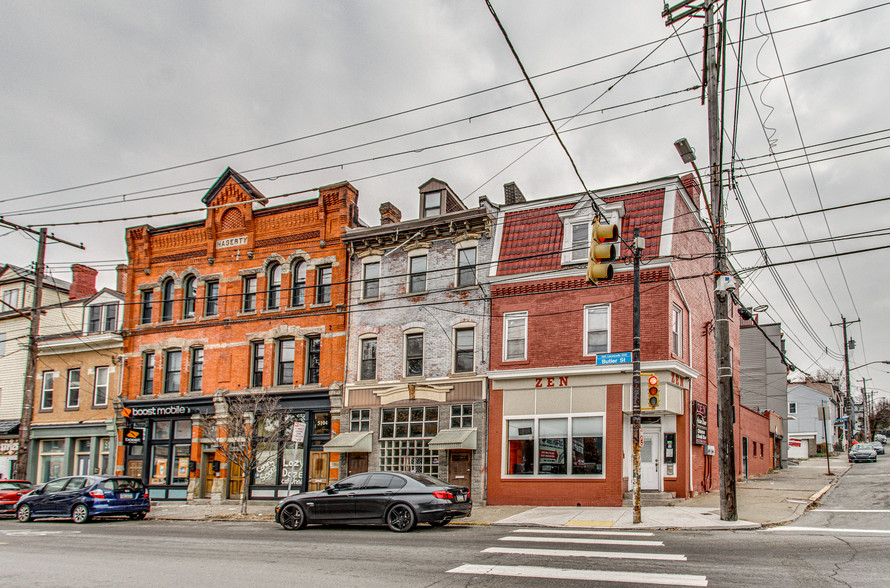Pittsburgh Businesses For Sale – The act of selling a home is a deeply emotional process, and when it’s completed, there’s a sense of closure and anticipation for what comes next. This subjective nature of value is what makes the “for sale” market so dynamic. This is especially true in a world dominated by fast fashion, disposable electronics, and mass-produced products. Websites and apps like eBay, Craigslist, Facebook Marketplace, and Poshmark have made it easier than ever to find second-hand goods for sale, offering a wider selection and more convenience than traditional brick-and-mortar stores. There is also a growing trend of online platforms that facilitate the buying and selling of businesses. The concept of quality, however, is not a one-size-fits-all. For environmentally conscious consumers, buying second-hand is not just a cost-effective choice, but a way to make a positive contribution to the planet. The possibilities are endless, and the result is often something more unique and personal than what could be bought new. The decision to sell an heirloom piece of furniture, for example, can be emotionally complex, as it involves a shift in one’s connection to the past. Quality products often come with warranties and customer service support, offering peace of mind to consumers who are investing in something that will serve them well over time. They walk into a space that holds the potential for their own memories to be created, for their own life to unfold. For example, someone might be able to purchase a used smartphone or laptop with the same features and specifications as a brand-new model, but at a significantly reduced price. In a world where everything is for sale, it’s easy for the vulnerable and the marginalized to be taken advantage of. Each item was unique, and the quality was immediately apparent to the buyer. For many, purchasing second-hand goods is not only a practical and affordable choice but also an environmentally conscious one. Acquiring an established business can provide a head start in terms of customer relationships, operational systems, and brand recognition. It implies that there’s nothing off-limits, nothing beyond the reach of commerce. These goods, ranging from clothing to furniture, electronics to books, offer people the chance to find items they need or want at a fraction of the cost of new products. The concept of “for sale” stretches beyond physical items. With the rise of online platforms and a growing cultural shift toward sustainability, the second-hand market continues to thrive, providing consumers with more options and opportunities than ever before.

Continuing coverage of the topselling Realtors in the Pittsburgh
1m+ usersbuy a businesssell your business50,000 active listings

Online database shows Pittsburgh's cityowned properties for sale
1m+ usersbuy a businesssell your business50,000 active listings

Buying Here A 14 million Downtown view? Pittsburgh PostGazette
1m+ usersbuy a businesssell your business50,000 active listings

Flowers for sale at a boutique in The Strip District an area of stores
1m+ usersbuy a businesssell your business50,000 active listings

5102 Butler St, Pittsburgh, PA 15201 Storefront Retail Residential
1m+ usersbuy a businesssell your business50,000 active listings

These are Some of the Fanciest Historic Houses for Sale in Pittsburgh
1m+ usersbuy a businesssell your business50,000 active listings

Koppers Building is up for sale in downtown Pittsburgh Pittsburgh
1m+ usersbuy a businesssell your business50,000 active listings

Browse Businesses for Sale in Pittsburgh Find Your Dream Opportunity
1m+ usersbuy a businesssell your business50,000 active listings

1900 Historic House In Pittsburgh Pennsylvania — Captivating Houses
1m+ usersbuy a businesssell your business50,000 active listings

Central Business District of Pittsburgh. Pennsylvania, USA Editorial
1m+ usersbuy a businesssell your business50,000 active listings
The idea that everything has a price, and that everything is for sale, may seem like a grim outlook, but it’s one that has become increasingly true. A person might sell a beloved possession to fund an important life change, such as starting a business, moving to a new city, or pursuing a dream. Many people continue to resist the notion that everything has a price, and they fight to reclaim what is meaningful and valuable in life. While buying and selling second-hand items can come with its challenges, the rewards—both financially and environmentally—make it a worthwhile pursuit for many people. While some people may be hesitant to purchase pre-owned electronics due to concerns about quality or reliability, the second-hand market for electronics has become increasingly trustworthy. When a car is put up for sale, it can feel like letting go of a part of one’s journey. For the buyer, acquiring such a piece may carry with it the honor of preserving a legacy, or the satisfaction of adding a unique, timeless item to their own collection. They believe that certain things, like love, loyalty, and friendship, should be above the reach of commerce. It is subjective, shaped by cultural norms, individual preferences, and the evolving standards of various industries. Thrift stores often carry a wide variety of goods, from clothing and accessories to furniture, books, and electronics, and each item comes with its own story. One of the key defining features of quality goods for sale is their ability to stand the test of time. From designer labels to quirky, eclectic finds, second-hand clothing offers a wealth of variety and style at a fraction of the price of new items. Whether it’s vintage clothing, antique furniture, or used luxury watches, second-hand goods offer an opportunity for buyers to find quality items that are no longer available in stores. By purchasing second-hand items, consumers can help reduce the demand for new products, thereby lessening the environmental impact associated with manufacturing and shipping. In addition to individual sales, online marketplaces often feature businesses and professional sellers who specialize in second-hand goods, providing buyers with a curated selection of high-quality items. Whether it’s a vintage armchair, a gently used dining table, or a piece of mid-century modern furniture, second-hand furniture can be both functional and stylish. Buying second-hand goods has numerous advantages. As society has evolved, the scale of production has expanded, and many quality goods are now mass-produced or distributed through large retail chains. Through online marketplaces and platforms, small businesses and independent creators can sell their goods to a global audience. Whether through their durability, aesthetic appeal, or the values they embody, these products go beyond simple transactions.
Whether through local thrift stores, online marketplaces, or garage sales, the option to buy pre-owned items has created a flourishing market that continues to grow. It’s about letting go of something that no longer serves a purpose, while opening the door for something new to take its place. The sale process itself can be lengthy and involves multiple stages. For those considering buying a business, the appeal often lies in the opportunity to take over an existing operation and build upon its foundation. On the other hand, buyers may seek to negotiate lower terms based on the findings from their due diligence or their assessment of the business’s future potential. Many everyday products, such as kitchenware, footwear, and tools, can also be considered quality goods, provided they are made to last and perform well over time. Social movements and grassroots organizations work tirelessly to provide resources and support to those who need it, often without expecting anything in return. Relationships can become transactional, where each party enters into an agreement based on what they stand to gain. The struggle is not in resisting the marketplace entirely, but in finding balance, in ensuring that the things that truly matter cannot be bought, sold, or traded. Unlike starting a business from scratch, which requires time to build a reputation and establish market credibility, buying an existing business means stepping into an environment where some of the groundwork has already been done. In this broader sense, the concept of “for sale” is not just about the exchange of goods; it’s a driving force in the global economy, influencing how people live, work, and interact with the world around them. Acquiring an established business can provide a head start in terms of customer relationships, operational systems, and brand recognition. In the end, the phrase “for sale” is about more than just the exchange of money for goods or services. The world of second-hand shopping has also made quality goods more accessible. In some cases, the sale of an item can mark a pivotal moment in someone’s life. The advent of these online platforms means that consumers can hunt for items they might have otherwise overlooked or been unaware of, sometimes at a fraction of the original cost. There is also a growing trend of upcycling and repurposing second-hand goods, where items that may no longer serve their original purpose are transformed into something new and useful. A piece of art, for example, may be valued differently by various individuals based on personal taste, financial resources, or the emotional connection they feel to the work. It carries with it a deep sense of commodification — the idea that every part of our lives, every piece of our history, every corner of our existence, has a price attached to it. The buying and selling of companies, brands, and even entire industries can reshape economies, alter job markets, and redefine how goods and services are delivered.